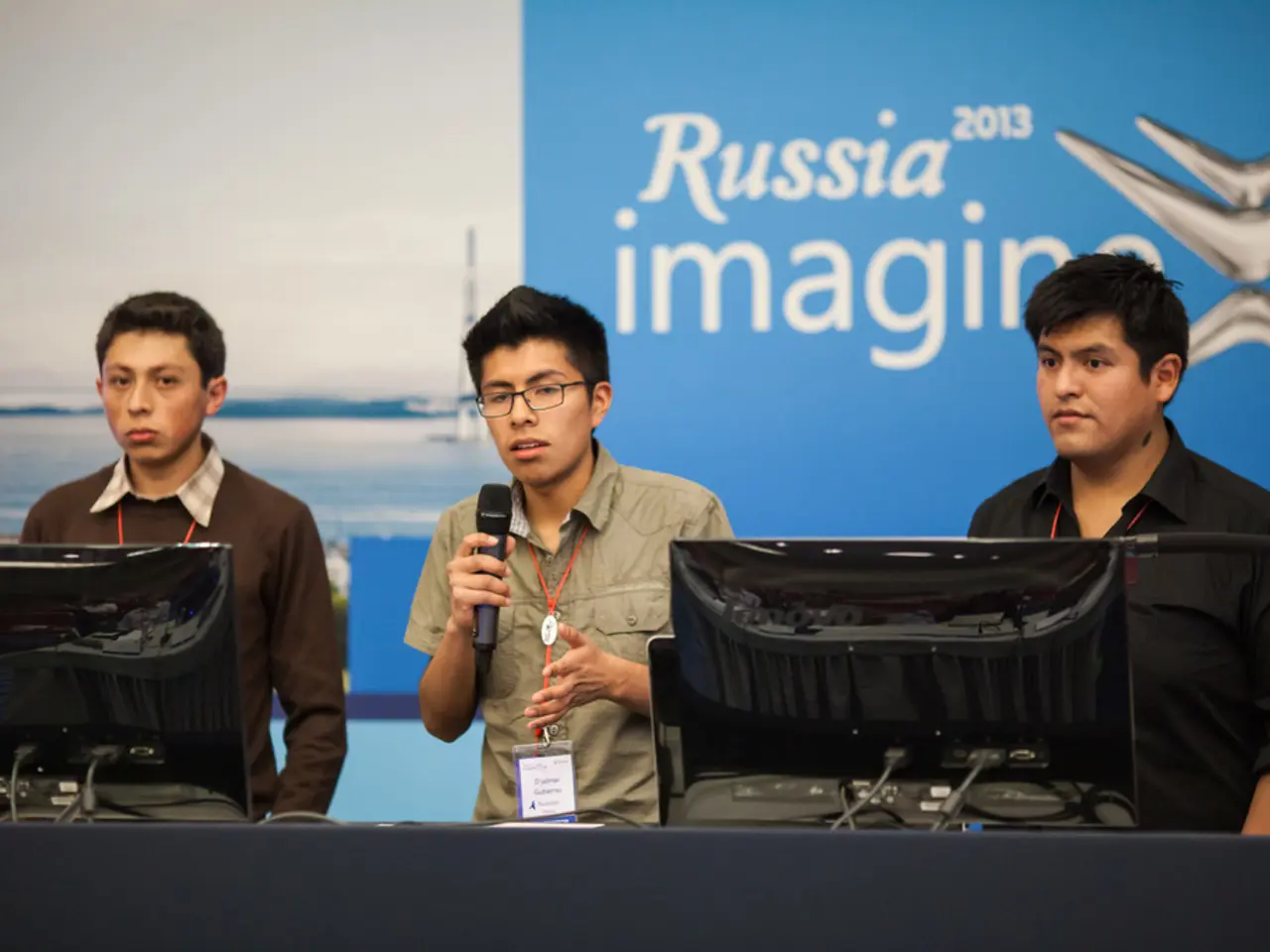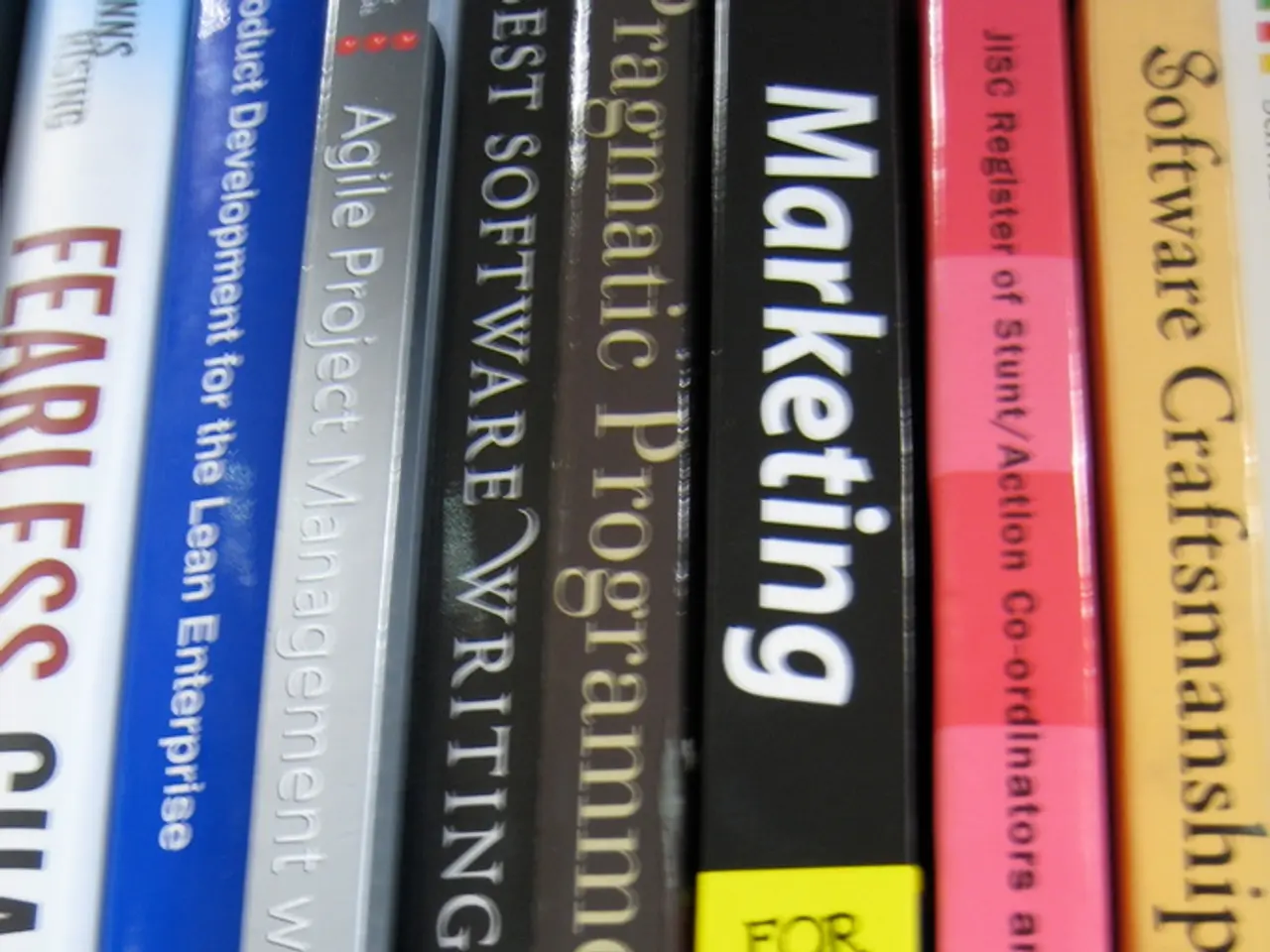Annual Hacking Competition in 2016
In the rapidly evolving digital world, a leading company is setting new standards with its unique approach to talent acquisition. On October 20th, 20XX, the company will host its fifth "Hacking Challenge" at the University of Applied Sciences Hagenberg, marking another milestone in its innovative recruitment strategy.
The Hacking Challenge, a high-security event, is designed to appeal to young IT talents by tapping into their interest in overcoming challenges in a playful way. This format, initially conceived as a means for talent recruitment, has proven effective in attracting the brightest minds in the IT sector.
The company, renowned for its core business in secure identity, is actively seeking hackers as future employees. With the corresponding completed education, there are attractive job opportunities available. The company's need for talents who can develop security solutions that hold is evident, and the Hacking Challenge provides a clear radar on who meets these requirements.
HR manager Renate Frühwirth believes that gamification is crucial in recruiting. She explains, "Gamification activates the brain's reward system, releasing dopamine, which enhances motivation and engagement among candidates." This approach keeps candidates more involved than traditional forms of recruitment, with companies reporting up to 60% higher engagement and 36% lower drop-off rates.
The benefits of gamification in recruitment are manifold. Increased engagement and motivation, real behaviour assessment, reduced bias and fairer hiring, improved candidate experience, and efficiency and scalability are just a few of the advantages that make this innovative strategy a success.
Specifically for IT talents, the Hacking Challenge offers practical skills assessment, talent identification, and competitive engagement. These challenges directly assess IT skills, such as coding, problem-solving, and cybersecurity, in a real-world context. They help identify top IT talents by evaluating their critical thinking and innovative problem-solving abilities. Hosting hacking challenges can attract a larger pool of skilled IT candidates by offering a competitive and engaging experience.
The company's Hacking Challenge is not just an event; it's a platform where young IT talents can ensure they are on the good side of security. Participants can showcase their skills, compete against their peers, and potentially secure a job at a company leading in the digital world, with innovations like the internationally awarded digital ID system MIA.
In conclusion, the company's Hacking Challenge is more than just a recruitment strategy; it's a testament to the power of gamification in attracting top IT talent and assessing their skills in a fun, interactive, and engaging way. The future of recruitment may well lie in the realm of hacking challenges, as companies continue to seek innovative ways to connect with the brightest minds in the IT sector.
Young IT talents can demonstrate their skills and potentially secure a job at a leading digital company by participating in the Hacking Challenge. Given the company's focus on technology and education-and-self-development, the event provides an opportunity for the brightest minds in the IT sector to showcase their coding, problem-solving, and cybersecurity abilities in a practical and competitive environment.




